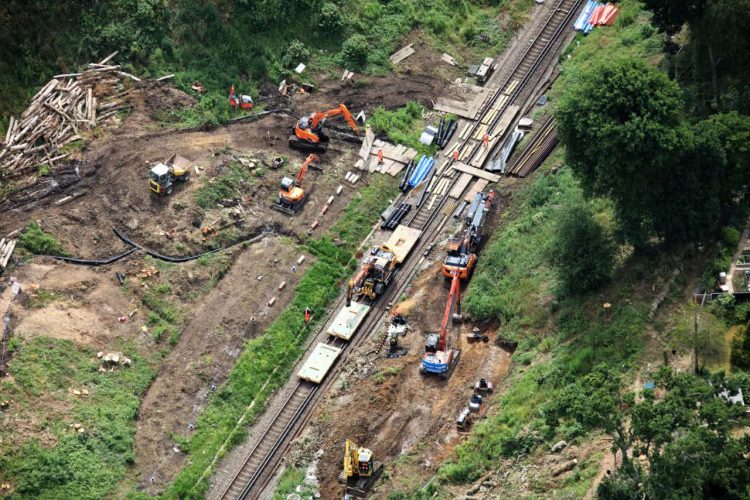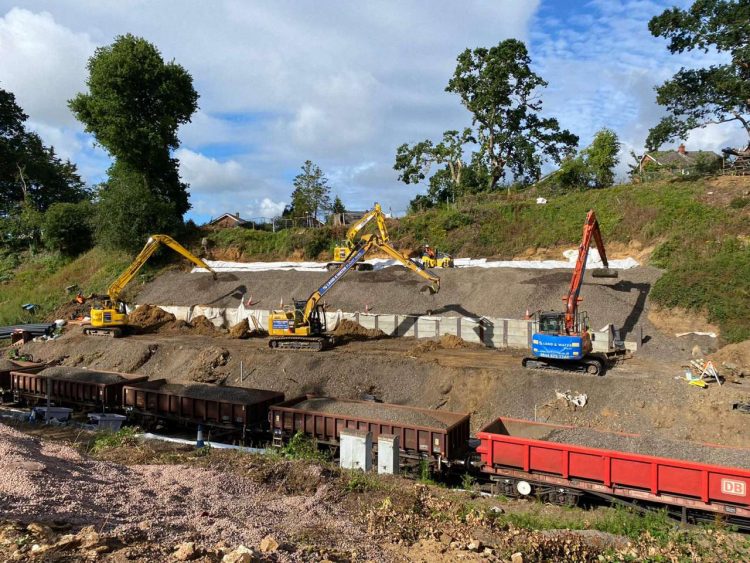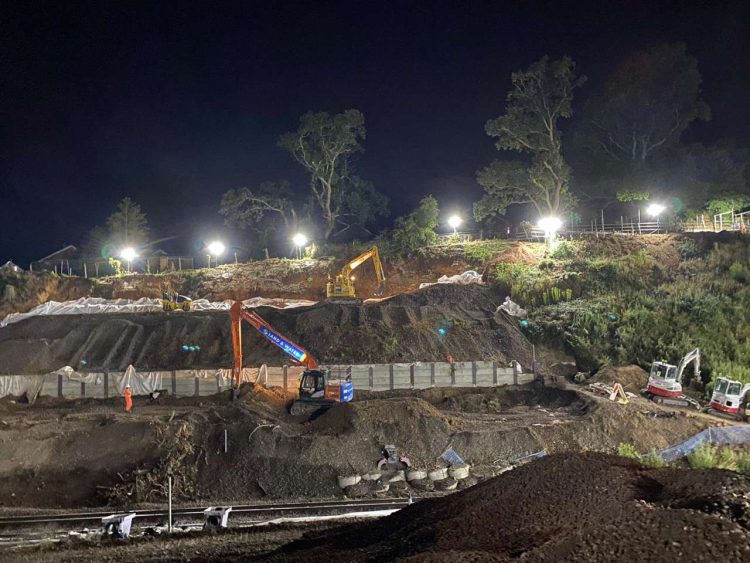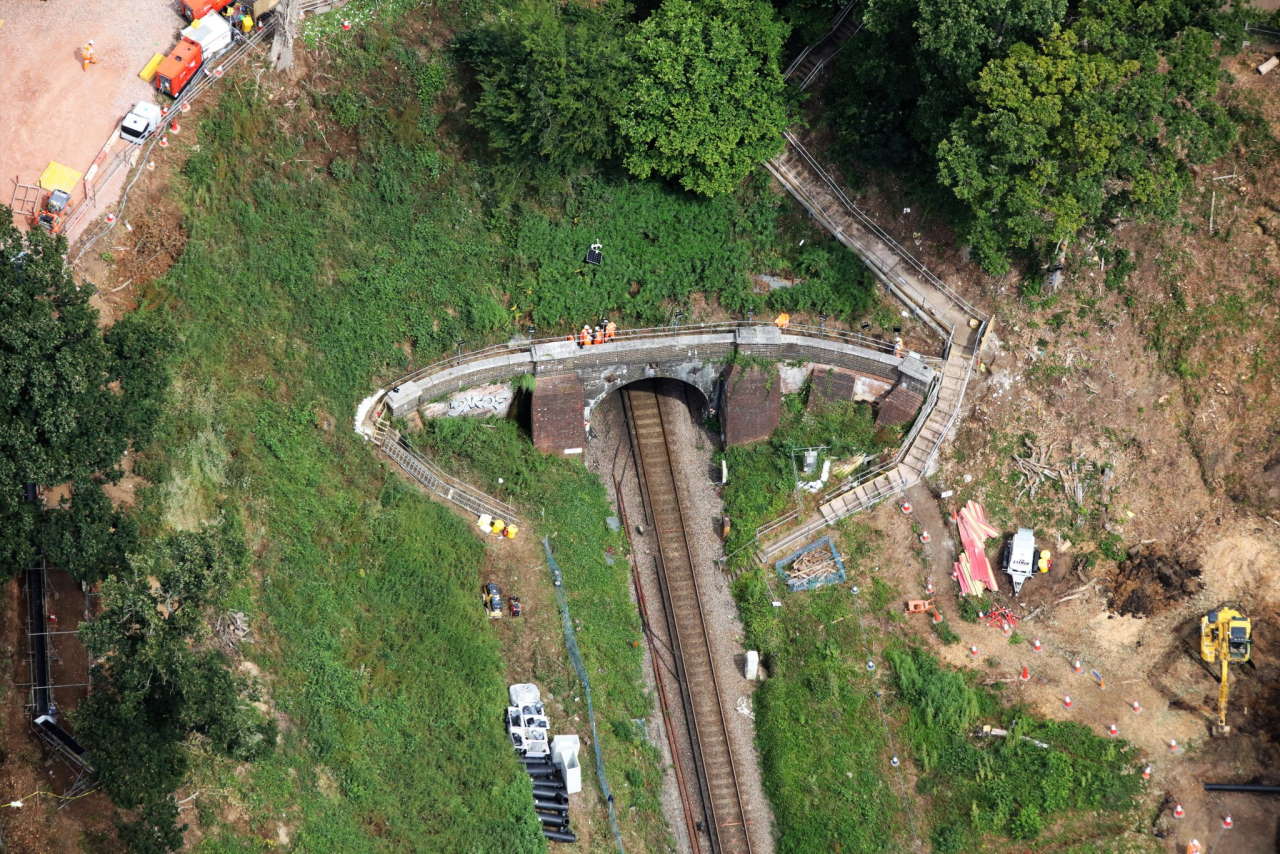Network Rail engineers have completed a £2.28 million project to prevent landslips on the line between Eastleigh and Fareham of Hampshire.
The line was closed for nine days between Friday, 24th June and Monday, 3rd July, with buses replacing trains during the closure.
A major part of the project was to reduce the steepness of a railway cutting near Fareham Tunnel, where the line is cut deeply into the hillside. Making the sides of the slope shallower has minimised the future risk of landslips that could be caused by earth movements in extreme weather.
Twenty construction vehicles and ten trains excavated and removed 5,000 tonnes of earth from the steepest side of the cutting. The excavated earth was replaced by an 80-metre-long retaining wall.

Hundreds of engineers worked a total of 7,500 hours during the closure. They also completed maintenance work on the track, points and crossings, electrical, signalling, and drainage.
In recent months, Network Rail has also completed landslip prevention works at Tunbridge Wells, on the Ashford line near Bearsted, on the Hastings line, and at Fairlie in North Ayrshire, while in Scotland tilt meters have been trialled to provide the railway with landslip protection

Network Rail’s Wessex route director, Mark Killick, said:
“We appreciate that closing the railway for a week was disruptive, especially on the back of the recent rail strikes, but this job was absolutely vital to keeping the line open and safe in future.
“The most recent landslip on the line, at Botley in 2014, closed the route for six weeks. By doing this work in nine days, we’re not only reducing the risk of landslips but we’re getting the job done in a far less disruptive way than closing the line repeatedly at weekends.
“To make the most of the access to the railway, we also completed more than 30 extra jobs, from routine inspections to important track maintenance, ensuring we handed back a more reliable line. I’d like to thank our customers and our railway neighbours for their patience while we completed this major work.”

SWR’s Customer Experience Director Christian Neill said:
“We are very grateful to our customers for their patience during these important engineering works, which we know came immediately after the impact of RMT strike action across our network.
“However, this was the most effective and efficient way of delivering these essential improvements, which have been planned and timetabled to take place for many months. By spending time engineering a permanent solution, as well as taking the opportunity to carry out other maintenance and improvements, customers will now experience greater reliability on this section of railway.”






Responses